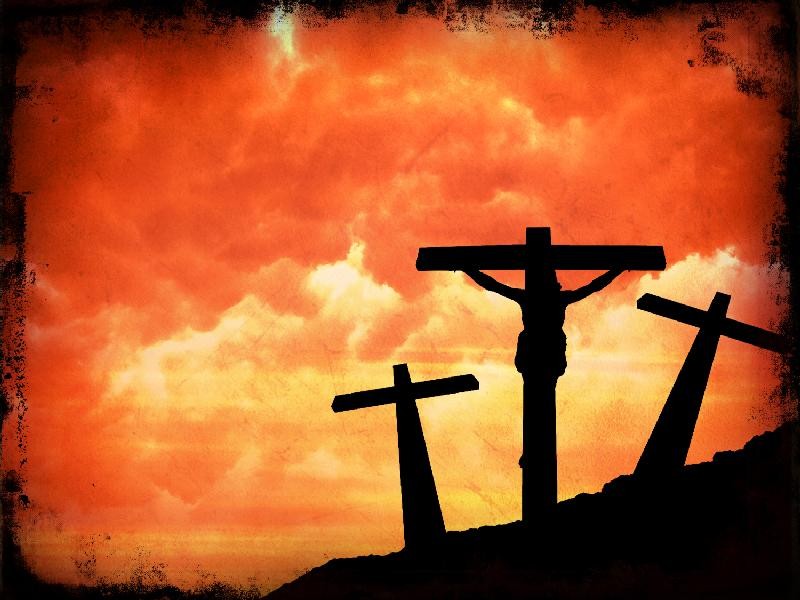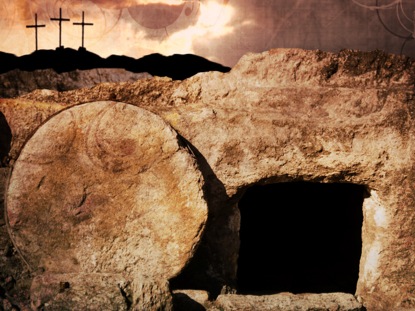“If Jesus rose from the dead, then you have to accept all that he said; if he didn’t rise from the dead, then why worry about any of what he said? The issue on which everything hangs is not whether or not you like his teaching but whether or not he rose from the dead.” –Timothy Keller (The Reason for God: Belief in an Age of Skepticism)
Month: March 2016
 “Golgotha is the converging point of all ancient history and the origin of all modern history.” — S. Lewis Johnson (“Golgotha”)
“Golgotha is the converging point of all ancient history and the origin of all modern history.” — S. Lewis Johnson (“Golgotha”)
The Bible makes a really big deal about the role our minds play in life and discipleship. Our every thought is to be taken captive to Christ and His Kingdom rule (2 Cor. 10:4-5).
Not surprisingly, then, the Bible has a lot to say about the place memory has to play in a disciple’s life. God’s people are exhorted repeatedly to “Remember” (e.g, Ex. 32:13; Joshua 1:13; 1 Chron. 16:12; Neh. 1:8; Isa. 44:21; Eph. 2:11; 2 Tim. 2:8; Heb. 13:7; Rev. 3:3)!
But even when we “remember,” we may do so in a way that becomes spiritually or emotionally unhealthy. There is a particular way we are to remember.
I was recently helped, in this regard, by something Mark Buchanan has written about memory run amuck.[1] It has to do with the role of nostalgia. And the older we are the more vulnerable we are to these kinds of memories-gone-to-seed.
Buchanan says, “I think nostalgia is really misplaced anticipation.” That is to say, “nostalgia is expectancy in reverse. It’s our instinct for heaven rummaging around in the storage closet, hoping that our heart’s true desire is in there somewhere, hidden amid a clutter of keepsakes and accumulated debris.”
We all have somewhere in our memory banks a treasure trove of “golden days” when things were, in our estimation, a good as they would ever get. Buchanan says, “If we don’t fathom that [the] beauty [of those days] is a rumor of heaven, we’ll make a fetish of the rumor and miss what it’s pointing to. We’ll try to cling to [the] beauty [of those days], and resent its fading.”
In other words, “We’ll become nostalgic.”
He goes on, “We all know the past was never as clean and bright as we remember it. Nostalgia pains history with gold, just as unforgiveness paints it black. Actually, nostalgia, besides being misplaced expectancy, is also second cousin to unforgiveness. Both unforgiveness and nostalgia share the trait of an unreconciled past. Nostalgia is a vain attempt to reconcile the past through wistfulness, whereas unforgiveness is a doomed attempt to reconcile it through vengeance. The past is actually only ever reconciled through four things: thankfulness, forgiveness, acceptance, and repentance. Most of us have a season or two when we try to reconcile the past in these other ways, through wistfulness or vengeance. But all we find (if we’re noticing) is it makes the past accumulate not resolve. It makes history’s hand on us heavy, not light, confining, not liberating. The past ends up claiming us in ways God never intended it to; rather than imparting clear identity that shapes destiny, it twists and thwarts destiny. Nostalgia and unforgiveness both do this.”
“In fact,” says Buchanan, “one easily becomes the other. He who waxes nostalgic will usually, in time, turn bitter about how the past won’t return to him; she who nurses unforgiveness will usually, in time, pin for some pristine beginning, some imagined prehistory before all the trouble began.”
When our remembrances make us less able to engage the present and move hopefully into the future, it’s a sign that nostalgia has held up our memory banks and robbed us of the divinely intended use of our God-given capacity for remembering. When we can remember and be moved with simple, profound gratitude and then freed to trust that same God to offer us more good (but different) experiences in the present and on into the future, it’s a sign that His Spirit is filling and using that memory-space He’s created in each one of us.
Father, thank you for all you’ve been to us and done for us in the years that lie behind. Thank you that you’ll be nothing less in this present hour and as the days ahead unfold. We gladly trust you to show your goodness again, in whatever wise and wonderful ways you choose fit to do so. In Jesus’ Name, amen.
[1] Mark Buchanan, Spiritual Rhythm: Being With Jesus Every Season of Your Soul (Grand Rapids; Zondervan, 2010), 118-120.
“I could never myself believe in God, if it were not for the cross. The only God I believe in is the One Nietzsche ridiculed as ‘God on the cross.’ In the real world of pain, how could one worship a God who was immune to it? I have entered many Buddhist temples in different Asian countries and stood respectfully before the statue of the Buddha, his legs crossed, arms folded, eyes closed, the ghost of a smile playing round his mouth, a remote look on his face, detached from the agonies of the world. But each time after a while I have had to turn away. And in the imagination I have turned instead to that lonely, twisted, tortured figure on the cross, nails through hands and feet, back lacerated, limbs wrenched, brow bleeding from thorn-pricks, mouths dry and intolerably thirsty, plunged in Godforsaken darkness. That is the God for me! He laid aside his immunity to pain. He entered our world of flesh and blood, tears and death. He suffered for us. Our sufferings become more manageable in the light of his. There is still a question mark against human suffering, but over it we boldly stamp another mark, the cross that symbolizes divine suffering. ‘The cross of Christ . . . is God’s only self-justification in such a world’ as ours.” –John R.W. Stott (The Cross of Christ, pp.326-327)
In “… our consumer-oriented, western Christian culture … almost everything is bent toward the will of the worshiper, rather than toward the one to be worshiped. Worship in such a context becomes a celebration, not of the sovereignty of God, but the sovereignty of the worshiper. They come before God to allow Him a chance to meet their needs, to invite Him to bow to their troubles and give Him an opportunity to abandon His plans and join them in theirs.
This is nothing short of the retailing of God!
Our word ‘retail’ comes from the Old French. The prefix re– means ‘back,’ while tail means ‘to cut’ or ‘to trim.’ The resulting combination came to describe ‘a piece cut off, shred, scrap, paring.’
That is precisely what’s left after self-defined, self-directed worship–shreds and scraps of God. There is something of God here, but it is bits and pieces sown together into a quilt of worship after a pattern of one’s own making. Such worship constructs a patchwork, piecemeal deity, fit neither to command our allegiance nor meet our needs.” (Life as Worship, p.146)



